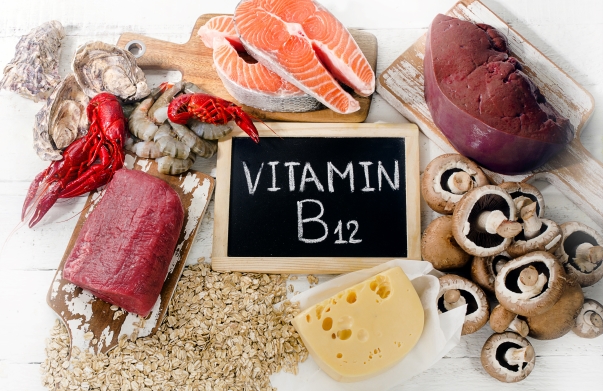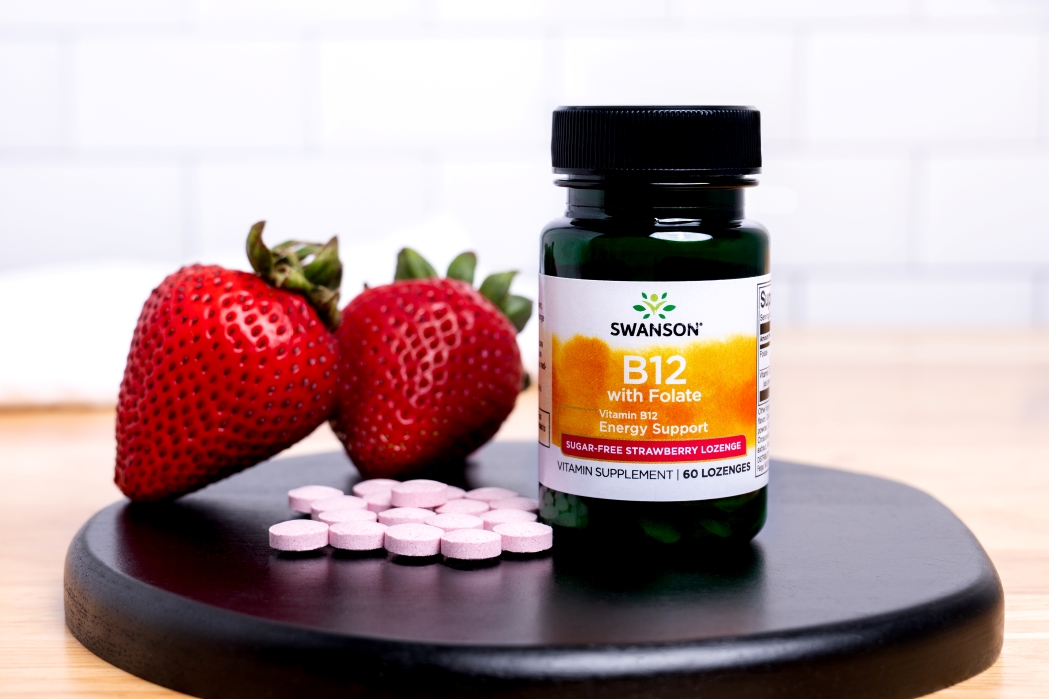Dietary Sources of Vitamin B12: Animal, plant-based, and fortified foods

Animal-Based Sources Rich in B12 and Their Efficacy
Animal-based sources are the most reliable and efficient natural sources of Vitamin B12. Foods such as meat, fish, and dairy products contain significant amounts of this essential nutrient. Meats like beef, chicken, and pork, as well as organ meats like liver, are particularly rich in B12. Fish, including salmon, trout, and sardines, are also excellent sources. Among dairy products, milk, cheese, and yogurt can contribute to your B12 intake.
The efficacy of animal-based sources lies in their active form of Vitamin B12, which is readily absorbed by the body. This bioavailable form ensures efficient utilization and utilization of the nutrient. However, it's important to note that the Vitamin B12 content in animal-based sources can vary depending on factors such as the animal's diet and processing methods. Therefore, it is recommended to opt for high-quality, lean cuts of meat and fresh, sustainable fish to maximize the B12 content.
Plant-Based Sources Rich in B12 and Their Efficacy
Plant-based sources of Vitamin B12 are limited and often contain inactive forms of the nutrient. However, some plant-based foods may provide trace amounts of B12 or analogs that can be converted to active B12 in the body. Examples include certain types of seaweed, fermented foods like tempeh and miso, and nutritional yeast. While these sources may contribute to overall B12 intake, they may not be sufficient to meet dietary needs on their own.
The efficacy of plant-based sources can be influenced by various factors, including individual differences in gut microbiota and absorption efficiency. Additionally, the conversion of analogs to active B12 can be limited in some individuals. Therefore, it is advisable for individuals following a plant-based or vegetarian diet to monitor their B12 levels regularly and consider B12 supplementation or fortified foods to ensure adequate intake.
Fortified Foods
Fortified foods are an important option for individuals following plant-based or vegetarian diets, as well as those with limited access to animal-based sources. Fortified plant-based milk alternatives, cereals, and nutritional bars are commonly fortified with Vitamin B12. These products can provide a convenient and reliable source of B12, especially when consumed as part of a well-rounded diet.
When choosing fortified foods, it's essential to read the labels carefully to ensure adequate B12 content. Look for products that provide a significant percentage of the recommended daily intake per serving. Additionally, consider the overall nutrient profile of the fortified food and aim for those with minimal added sugars or artificial ingredients.
Tips for Incorporating Vitamin B12 Foods into Your Diet
Incorporating Vitamin B12-rich foods into your diet can be simple and enjoyable. Here are some tips:
- Include a variety of animal-based sources such as lean meats, fish, and dairy products in your meals.
- Opt for organic, grass-fed, or free-range animal products whenever possible to ensure higher nutrient quality.
- Experiment with plant-based sources like seaweed, tempeh, miso, and nutritional yeast in your recipes.
- Consider consuming fortified plant-based milk alternatives, cereals, or energy bars that contain added Vitamin B12.
- Incorporate B12-rich foods into balanced meals that include other essential nutrients for overall health.
Individuals with specific dietary preferences, such as veganism or lactose intolerance, may face challenges in obtaining sufficient Vitamin B12 from natural food sources alone. In such cases, supplementation is often recommended to ensure optimal B12 intake. Consult with a healthcare professional or a registered dietitian to determine the appropriate supplementation strategy based on your individual needs.
Remember, a well-planned diet that includes a variety of nutrient-rich foods is key to meeting your Vitamin B12 requirements. Whether you choose animal-based sources, plant-based options, fortified foods, or a combination thereof, it's important to be mindful of your dietary choices and make informed decisions to support your B12 intake.
References
National Health Service (NHS) UK. "Vitamins and minerals - Vitamin B12." Retrieved from: https://www.nhs.uk/conditions/vitamins-and-minerals/vitamin-b/
National Institutes of Health. "Vitamin B12." Retrieved from: https://ods.od.nih.gov/factsheets/VitaminB12-HealthProfessional/
Vegan Society. "Vitamin B12." Retrieved from: https://www.vegansociety.com/resources/nutrition-and-health/nutrients/vitamin-b12
Vegetarian Nutrition. "Vitamin B12 in the Vegan Diet." Retrieved from: https://vegetariannutrition.net/docs/B12-Vegetarian-Nutrition.pdf
United States Department of Agriculture (USDA). "FoodData Central." Retrieved from: https://fdc.nal.usda.gov/















